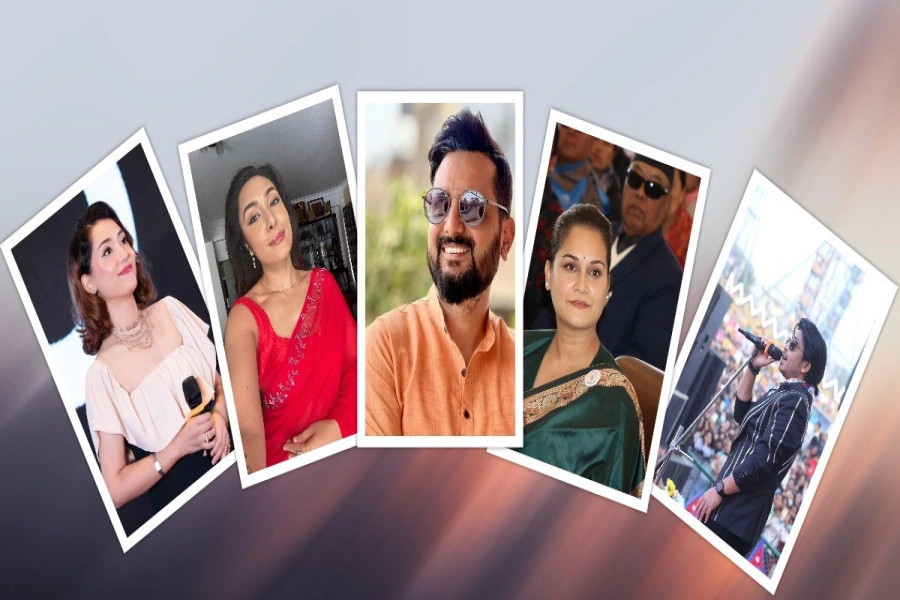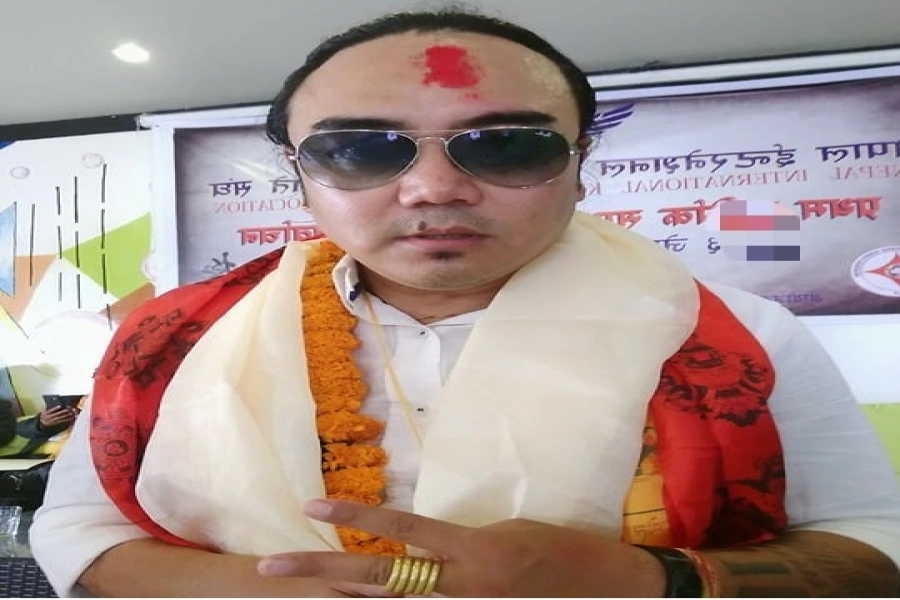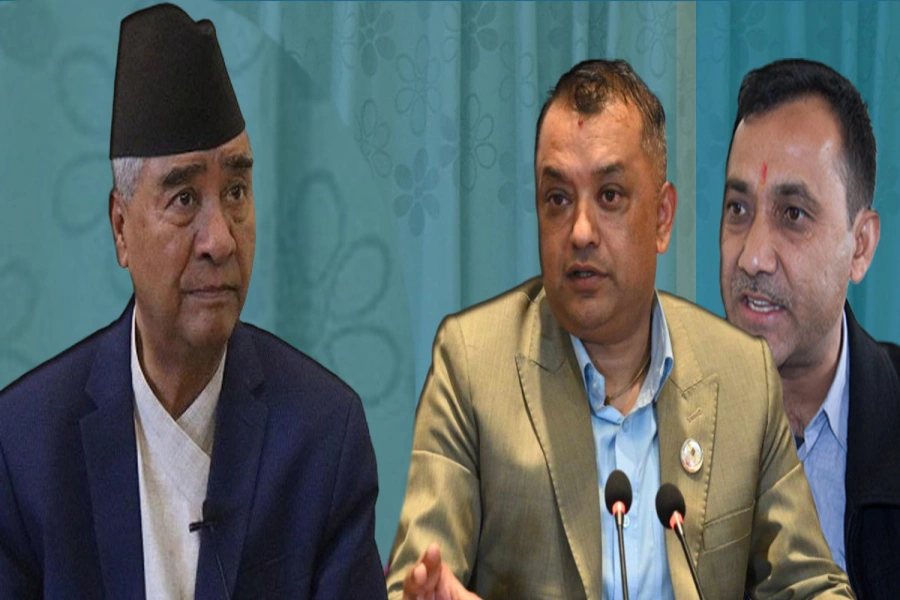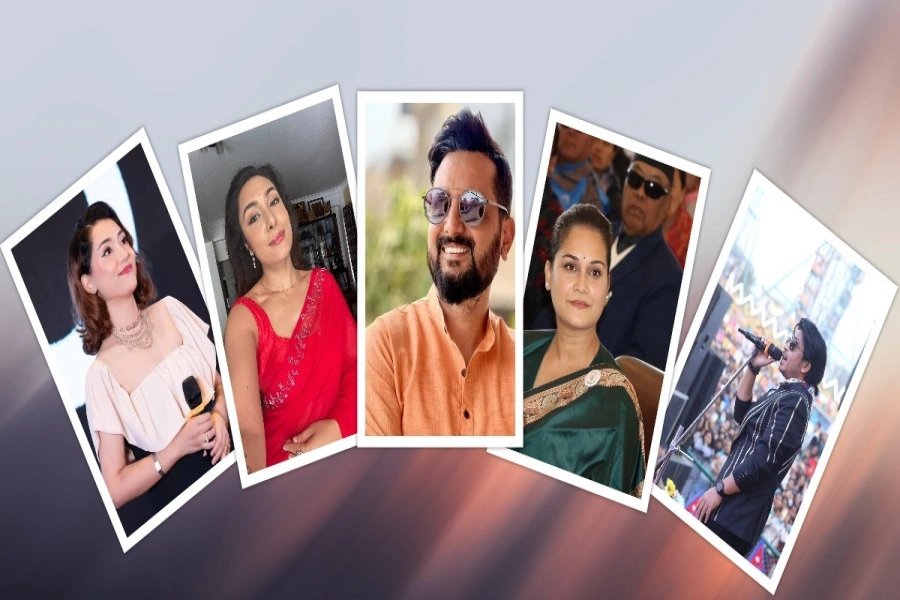You have to soar high to see three things together at one strike of a day: Appa, Fewa, and Tagore, all together. Probably this was one of my best stays in Pokhara (Oops! Many of my friends would be jealous, for multiple poetic reasons though!). I will have more for sure!
Overjoyed, I took my books and rushed to her residence at Khapaundi, the famous driveway locality by the side of the Fewa on the way to Pame. There is a beautiful hut on the brow of the hill from where you can see the entire stretch of the lake. Even an hour’s heavy rain sprouts mist above the water and land, and I have heard Appa singing songs while looking at the misty lake.
“I know that you have come here to write a paper on Tagore,” she told me. I went in the kitchen and tried to collect a pan and cups to help her prepare tea. “How do you sing Tagore songs so beautifully?” I asked. “How do you have the passion for singing, the passion for philosophical discussions?”
“They are the same thing, philosophy and singing, or watching the oceanic waves and reading Shakespeare, Victor Hugo once said. Singing for me is the recollections of the past, paying tribute to memories which come to me again and again, and you weave them to words and music. I sing beautifully – you say, and others too say – because I trust my voice. I learnt Tagore songs in Rabindrik voice mode but do not stick to it any more. I am trying to learn Nepali folk but I am just a beginner.”
I listened to her songs for an hour, took lunch with her, and returned to the hotel to resume my writing on Tagore for the conference in Kathmandu organized by Prof Geeti Sen of Indian Cultural Center. What strikes us the most about the poet is that he wrote immensely from art to philosophy, novels to poetry, drama to musical compositions.
Most of us wanted to participate in the conference because of the poet himself. As the teachers and students of literature, we have tremendous respect for the writer. Furthermore, many of the students in the departments of English do research work in field of South Asian literatures and cultures.
Tagore is the foremost thinker of the contemporary times, and I always feel that such geniuses should also be references of communication between countries like Nepal and India. Apart from political dialogues, pop cultural entertainment exchanges, and sports interactions, there must be a communicative level of comprehension which caters to the need of university atmosphere. University is the very place where writers and nations, cultures and cultuses are discussed with the seriousness of form and content. Comprehending India from Tagore’s mind makes our scholarly space very aesthetic in the otherwise contested world of misunderstandings.
While offering courses on South Asia during the last two years, which in fact is my present focus of research, I have used Tagore time and again. The purpose of using Tagore to discourse about South Asia is important because he is first a poet of immense South Asian sensibility. Similarly most of us too are, in our own humble ways in the Nepali world of literature. Nepali poet Devkota too strikes the same pervasive chord.
The aesthetic, literary, philosophical, and artistic chords are missing many a times when we talk about relationships between countries, especially between Nepal and India. The space for relationships must also be in the space of higher education, which a university provides. University is the intellectual space which may critique the deep structure of relationships between cultures and nations without much prejudices and fore-texts of political misunderstandings.
I am happy that I am representing a section of Nepali academia with some of my colleagues, and more importantly, I happened to meet Jahnavi-appa in Pokhara. I heard her singing at a place which in incomparable for its beauty, both are incomparable.
My beginning is beautiful, with Appa and Fewa, and Tagore! The only impediment is my singing which I should control up to some inaudible humming. The problem is that when there is Appa, Fewa, and Tagore around, how do you control. I controlled to pay respect to all the three dear elements. I am not a bad singer though in my most private singing spree, especially when there is load shedding and my wife is not around.
In those private moments of singing, I have confidence in my deep throated voice. The confidence evolves out of the absence of others. Anyone can remember Tagore, Fewa, Appa, and sing. My best aesthetic sensibility is that I can connect the three together as you can connect Sama and Shakespeare, Devkota and Tagore.
orungupto@gmail.com
Remains of an archeological building found in Bhaktapur






































